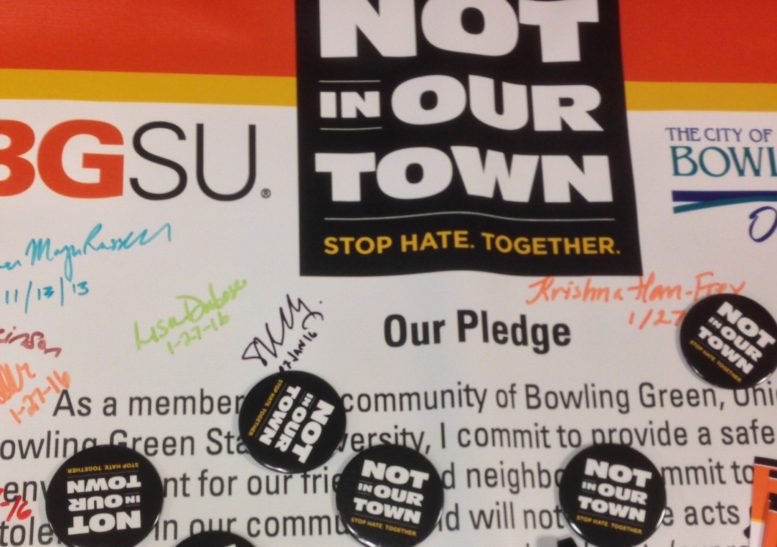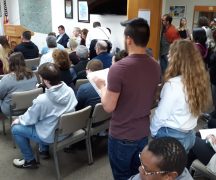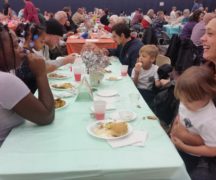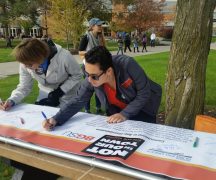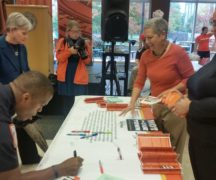By JAN LARSON McLAUGHLIN
BG Independent News
Not In Our Town has proven that it can organize large gatherings to confront local or nation injustices.
Now the organization is trying to figure out how to respond to smaller issues – like micro aggressions that occur in the community.
A micro aggression is a statement or action of indirect, subtle or unintentional discrimination against members of a marginalized group such as a racial or ethnic minority. While significant to those involved, they don’t rise to the level of organizing a rally in defense.
When NIOT receives reports of micro aggressions occurring in Bowling Green, the members want to respond. One of the most recent incidents occurred in a local grocery store, when a customer reportedly used a racial slur to a BGSU student.
Last week, NIOT members talked about how it can best respond to these types of “hate language” incidents.
“Some things take person to person contact,” said Rev. Gary Saunders, co-chair of NIOT.
Mark Hain, a theater and film professor at BGSU, talked about fear and depression expressed by his students since the presidential election.
“I feel that as well,” Hain said.
“I don’t want the town I live in to be the place where students are afraid to leave their dorm rooms,” Hain said.
So he attended the NIOT meeting in hopes of finding some solutions.
“I feel a lot of hope with younger people, and I don’t want to see that crushed,” Hain said.
During a panel discussion recently at BGSU, an African-American student was asked about his experiences in the community. While he characterized the community as great, he added that “awful” moments do occur, such as when he is called the “N” word.
“I don’t experience those things, so it’s good for me to hear that,” Bowling Green City Council member Bruce Jeffers said.
“It’s good for all of us to hear that,” NIOT member Julie Broadwell said. She mentioned the recent rally against Donald Trump’s “travel ban” that NIOT helped pull together in less than 24 hours. More than 250 attended. “That really showed that we are listening to what they are saying.”
“If we didn’t have the culture that some of these things happen, we wouldn’t need to be here,” Saunders said.
Members of NIOT decided that information should be added to the organization’s website about how to contact NIOT if an incident of micro aggression occurs.
Linda Landers talked about plans to offer an educational series on reducing prejudice. One of the workshops could discuss bystander training for how people can handle hate speech or actions by others.
Bowling Green Police Major Justin White also said a YouTube video could be created for bystander training on handling micro aggressions.
Also at the Not In Our Town monthly meeting, Saunders said efforts are being made to have the city of Bowling Green identify itself as a “welcoming community.” That term means the city would officially state its belief that incoming immigrants are seen as a positive opportunity for the business and civic community.
“We know immigrants coming in can benefit the community,” Saunders said, especially in cases where there are challenges in the labor force.
Toledo and Dayton are also considering becoming “welcoming communities, he said.
“We’ve had immigrants in Bowling Green for decades,” Jeffers said. “We’ve had undocumented people in the community contributing. People are suddenly scared.”
NIOT would like to partner with the chamber of commerce and other groups to explore the possibilities. “Folks would like to gather a coalition,” Saunders said.
Also at last week’s meeting, the group was reminded of the annual interfaith breakfast planned for April 5, with the program starting at 8 a.m., in the Wood County Junior Fair Building. The program will feature speakers from six different faiths.

